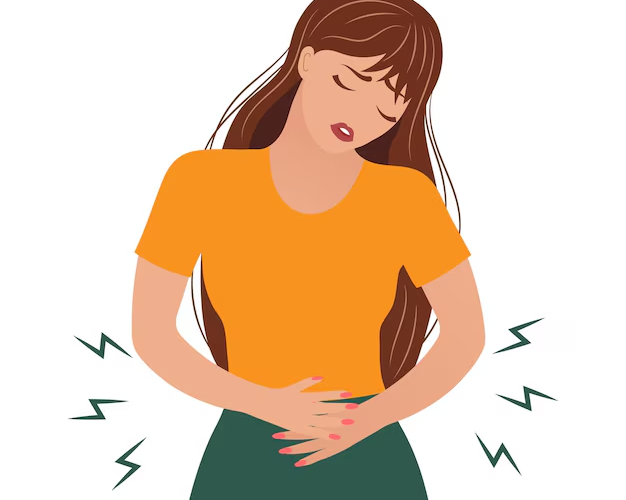
Endometriosis and Infertility: A Doctor’s Journey with Patients

Endometriosis and Infertility: A Doctor’s Journey with Patients
As a fertility specialist, one of the most challenging but rewarding parts of my job is helping women with endometriosis achieve their dream of motherhood. Endometriosis is a complex condition, and it affects every woman differently. For many, it’s not just about the pain—it’s about the frustration of trying to conceive and facing the uncertainty of what comes next. Over the years, I’ve worked with countless women navigating this journey, and I’ve learned that while endometriosis can complicate fertility, it’s far from a dead end. I want to share one case that has stayed with me, as well as insights I’ve gathered from treating this condition.

The Story of Anna: Turning Pain into Possibility
 Anna came to my clinic at 34, after trying to conceive for nearly two years. She had been living with painful periods and pelvic pain for as long as she could remember, but she had always assumed it was “normal.” When her attempts to get pregnant didn’t succeed, her OB-GYN referred her to me.
Anna came to my clinic at 34, after trying to conceive for nearly two years. She had been living with painful periods and pelvic pain for as long as she could remember, but she had always assumed it was “normal.” When her attempts to get pregnant didn’t succeed, her OB-GYN referred her to me.
During our first consultation, Anna described her symptoms: intense cramping, pain during intercourse, and occasional spotting between periods. After discussing her history, I suspected endometriosis, a condition where tissue similar to the lining of the uterus grows outside it, causing inflammation and scarring.
We scheduled a laparoscopy, a minimally invasive surgery to confirm the diagnosis and assess the extent of the condition. The results revealed that Anna had stage III endometriosis, with adhesions on her ovaries and fallopian tubes.
“I feel like my body is working against me,” Anna said tearfully after hearing the results. I reassured her, “Endometriosis is challenging, but it doesn’t mean motherhood is out of reach. We have options.”

How Endometriosis Affects Fertility
Endometriosis can impact fertility in several ways:
- Physical Damage to Reproductive Organs: Scarring and adhesions can block or distort the fallopian tubes, preventing the egg from meeting the sperm.
- Inflammation and Implantation Issues: Inflammation caused by endometriosis can interfere with embryo implantation in the uterus.
- Egg Quality and Ovulation: In some cases, endometriosis can affect the quality of eggs or disrupt ovulation cycles.
Dr. Emily Carter, a renowned endometriosis specialist, explains, “Endometriosis is a multifaceted condition. It’s not just about the visible damage—it’s about how the condition impacts the entire reproductive environment.”
Anna’s Treatment Plan
After discussing Anna’s case, we developed a comprehensive plan to address her endometriosis and improve her chances of conceiving.
1. Excision Surgery
The first step was removing as much of the endometriosis tissue as possible. Excision surgery is the gold standard for treating endometriosis because it targets the disease at its root. During the procedure, we removed adhesions from her ovaries and fallopian tubes, restoring their natural function.
“Surgery isn’t a cure,” I explained to Anna, “but it can significantly improve fertility outcomes, especially when paired with other treatments.”
2. Hormonal Therapy
After surgery, we used hormonal therapy to suppress any residual endometriosis and reduce inflammation. This helped create a more favorable environment for conception.
3. In Vitro Fertilization (IVF)
Given Anna’s age and the severity of her endometriosis, we decided to proceed with IVF. IVF bypasses many of the barriers caused by endometriosis, such as blocked tubes or a hostile pelvic environment.
“IVF allows us to control the process more precisely,” I told Anna. “We can fertilize the eggs outside your body and transfer the healthiest embryos back into your uterus.”
The Emotional Toll of Endometriosis and Infertility
One of the hardest parts of Anna’s journey—and for many women with endometriosis—is the emotional burden. Chronic pain, failed attempts to conceive, and the uncertainty of the future can take a significant toll.
Anna admitted, “Every negative test felt like another reminder that my body was broken.” To help her cope, I encouraged her to join a support group for women with endometriosis and infertility. Sharing her story and hearing from others who had been through similar struggles made her feel less alone.
Dr. Carter emphasizes, “Emotional support is a critical part of treating infertility. Women need to know they’re not alone and that their feelings are valid.”
A Happy Ending
After two IVF cycles, Anna finally received the news she had been waiting for: she was pregnant. Seeing her joy during her first ultrasound was a reminder of why I do what I do. Nine months later, Anna gave birth to a healthy baby girl.
“I never thought this day would come,” Anna said during a follow-up visit. “Thank you for not giving up on me.”
What I’ve Learned from Treating Endometriosis
- Every Case is Unique: Endometriosis varies greatly from woman to woman. What works for one patient may not work for another.
- Early Intervention is Key: Diagnosing and treating endometriosis early can improve outcomes and reduce complications.
- Comprehensive Care Matters: A combination of surgical, medical, and emotional support is often the best approach.
- Never Lose Hope: While endometriosis is challenging, many women can achieve their dream of motherhood with the right care.
Final Thoughts
Endometriosis may be a complex and frustrating condition, but it’s not insurmountable. With advancements in treatments like excision surgery and IVF, there are more options than ever before for women struggling with infertility. As a doctor, I’ve seen how resilience, determination, and the right medical care can make a world of difference.
To any woman facing endometriosis and infertility: you are not alone. Your journey may be tough, but it’s not impossible. There is hope, and there are people ready to walk this path with you.














